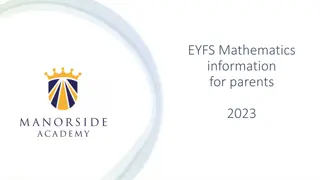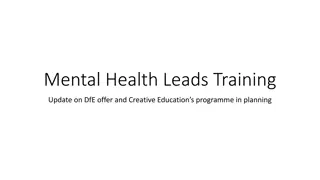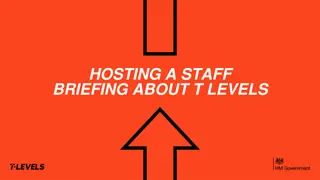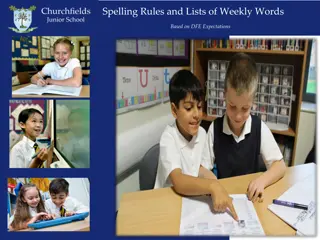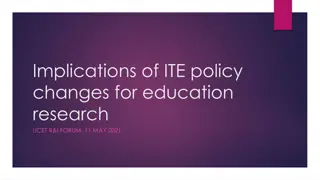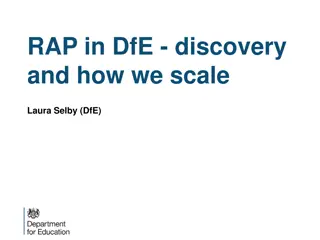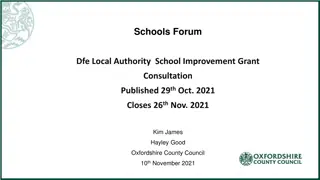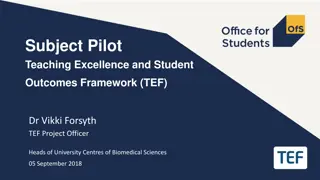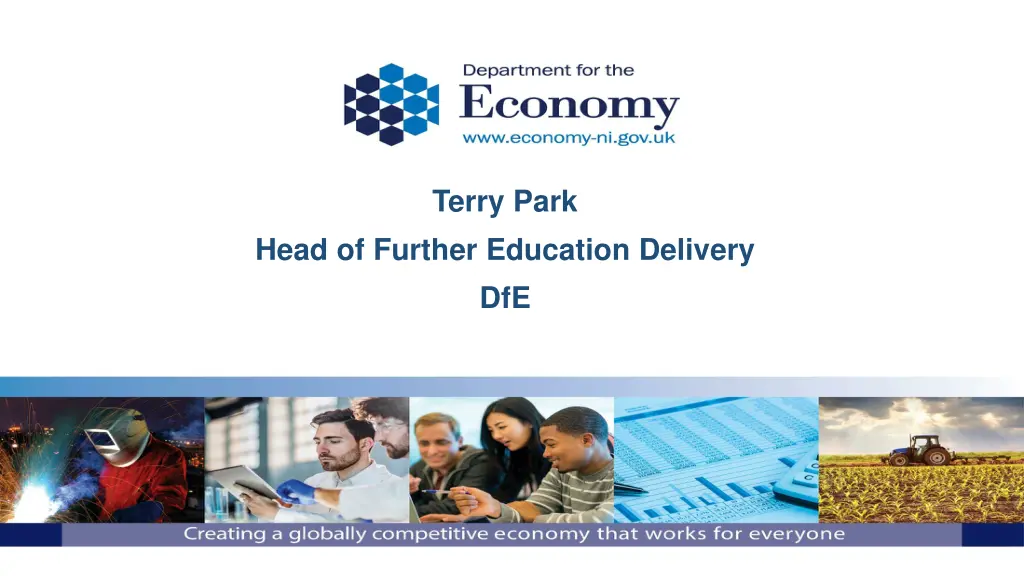
Skills Strategy Development in Northern Ireland
Explore the ongoing skills strategy development in Northern Ireland led by Terry Park, Head of Further Education Delivery at the DfE. Delve into topics such as the skills landscape, strategy objectives, stakeholder engagement, OECD analysis, and upcoming steps to shape the future of skills policy and governance.
Download Presentation

Please find below an Image/Link to download the presentation.
The content on the website is provided AS IS for your information and personal use only. It may not be sold, licensed, or shared on other websites without obtaining consent from the author. If you encounter any issues during the download, it is possible that the publisher has removed the file from their server.
You are allowed to download the files provided on this website for personal or commercial use, subject to the condition that they are used lawfully. All files are the property of their respective owners.
The content on the website is provided AS IS for your information and personal use only. It may not be sold, licensed, or shared on other websites without obtaining consent from the author.
E N D
Presentation Transcript
Terry Park Head of Further Education Delivery DfE
FE Strategic Context A Look Back B a r o m e t e r S t r a t e g y Draft NICS Delivery Plan S k i l l s S k i l l s 2 0 2 0 Draft Industrial Strategy Pillar 2 FE Means Success
Skills and the Programme for Government Programme for Government
The Skills landscape in Northern Ireland today Between 2011 and 2019: Employment rate up from 67% to 72% Unemployment down from 7% to 2.4% Inactivity down from 28% to 26% Gap in number inactive in NI and GB up from 4% to 5% Skills biased technical change Changing nature of globalisation The impact of the UK leaving the EU, and NIs position Ageing workforce
Strategy development work to date Series of Stakeholder Engagement Events Key feedback on needing a whole of government approach to coordinate education, training, labour market, migration, and other policies affecting the development and use of skills. Research Best Practice in Small Advanced Economies Strategic Integration of Skills and Innovation Policy Skills Barometer OECD engagement NIC-ICTU involvement and contribution
OECD Analysis 1 Creating a culture of lifelong learning 2 Reducing Skills Imbalances 3 Effectively using skills in workplace Strengthening the governance of skills policies 4
Skills Strategy Policy Objectives Lifelong Digital Skills Imbalance Learning Skills Governance Policy Cohesion Investment
Next Steps March: Update to DfE Committee on Skills Strategy Development March: Evaluation of 2011-2020 Skills Strategy published May: Research on Skills spending across government June: Final OECD Report Summer 2020: Publication of Interim Report, for Consultation Autumn 2020: Final Strategy development, engagement with Board, Committee, Executive Winter 2020: Formal Launch of Skills Strategy
UNION LEARNING FUND CAN HELP Partnership between central government and the local Trade Union movement Department for the Economy and NIC-ICTU Aligns with key policy objectives and strategic themes: Lifelong learning Re-skilling and upskilling of the existing workforce Addressing skills imbalance
UNION LEARNING FUND CAN HELP Enables NIC-ICTU and its member unions to have a say in future skills policy development; Working with local FE colleges and other training providers, ULF can help deliver targeted training and qualifications at all levels, but with a particular emphasis on Entry Level, through to Level 2 and 3; Building strong and positive relationships with between staff representative bodies and employers, which benefits everyone.
ULF Looking Forward Continue with the renewed emphasis on relevant accredited qualifications, including Essential Skills; Greater partnership work with the six regional FE Colleges, and look for opportunities to compliment existing provision and programmes; Consider specific skills areas, and levels of qualifications, in line with those that feature in the new Skills Strategy, and that will support growth sectors of employment; Regular and ongoing communication with departmental officials to monitor ULF performance and achievements against the agreed targets.


